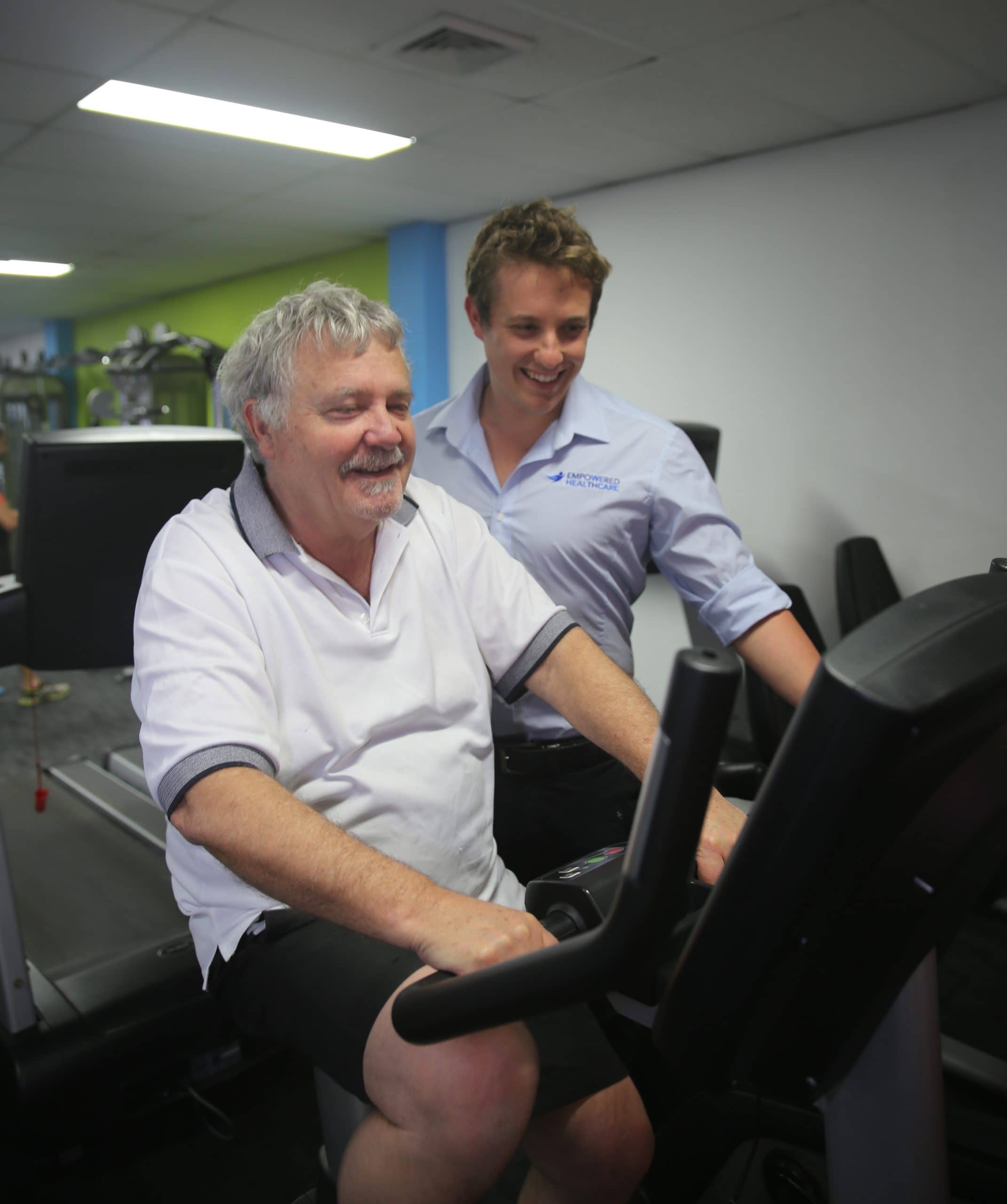Cardiac Rehab Classes
By Exercise Physiologists
Cardiac Confidence!
Confidence After Cardiac is a group based exercise class specifically designed for people following a cardiac episode. Whether you attended cardiac rehab at a hospital, or not, this class guarantees getting your health, and your confidence back on the right track.
Cardiac rehabilitation (cardiac rehab) is a personalised program of support, exercise and education that is led by health professionals to strengthen your heart. It helps you make long-term lifestyle changes so that you can live a longer, healthier life.
Cardiac rehab helps your recovery after a heart event, procedure or the diagnosis of a heart condition. It also helps lower your chances of having heart problems in the future.
Cardiac rehab is proven to keep you out of hospital and reduce your risk of death from heart conditions.
Cardiac rehab usually runs for 6 to 10 weeks, depending on your program and your health condition. Many of our clients choose to continue with ongoing exercise classes.
- Face-to-face
- Over the telephone
- On the internet
- In a group or one-on-one
- In our Gym at Gymea, at your home or at a hydrotherapy pool.
As cardiac rehab often involves physical activity and exercise to improve heart health, it can sometimes be daunting. Don’t worry if you find some exercises challenging or have never done them before. An expert will give you safe exercises to suit your ability.
Through a cardiac rehab program, you will be better able to return to your usual activities, such as working, driving and other activities you enjoy.
Is cardiac rehab for you?
- Coronary heart disease
- A heart attack or admission for angina
- A stent procedure or heart surgery (bypass, valve or artery surgery)
- Heart failure and cardiomyopathy
- Heart transplant
- A device insertion, for example a pacemaker or implanted defibrillator
- A cardiac arrest
- In-heart electrical rhythm problems, such as atrial fibrillation
- High blood pressure in your lungs (pulmonary hypertension)
- A stroke or mini stroke (TIA)
- An event (stent, PCI, CAGS).

